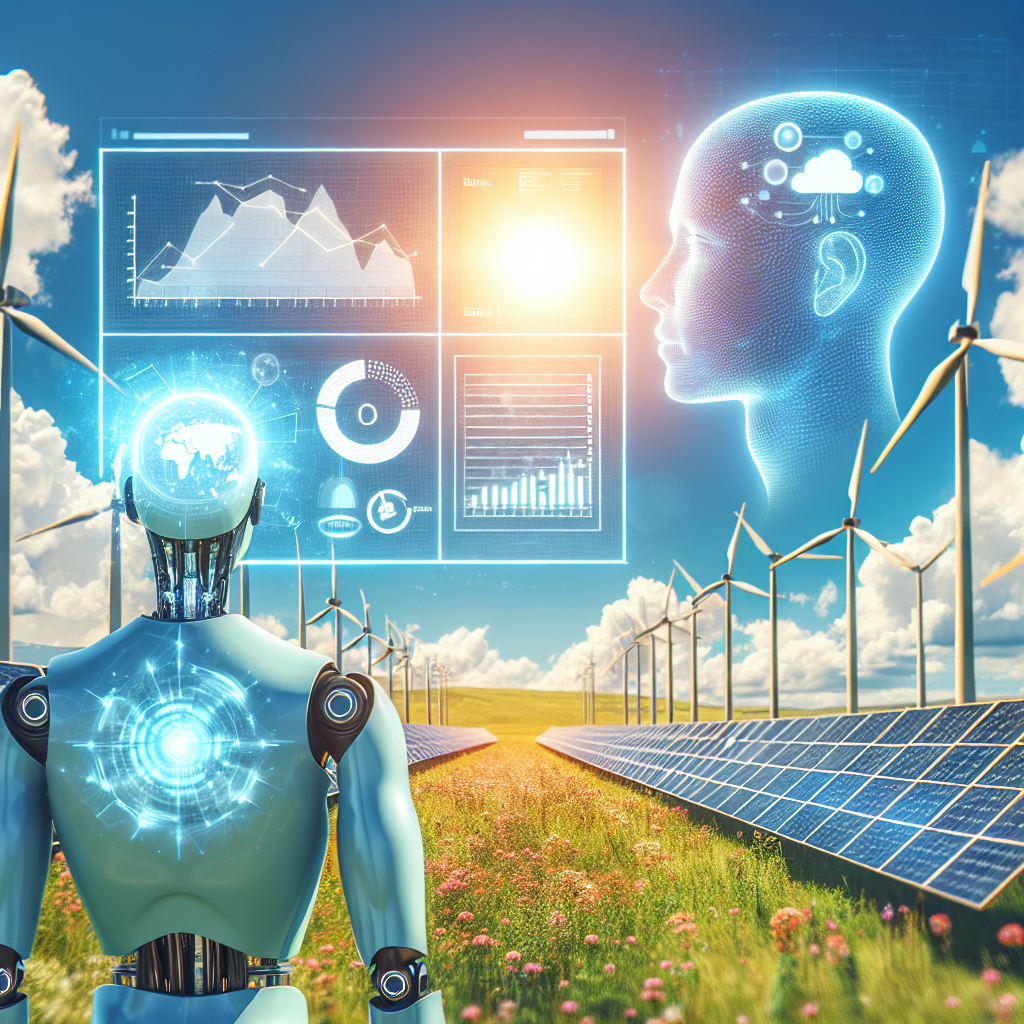Artificial intelligence (AI) has been making waves in various industries, revolutionizing the way businesses operate and improving efficiency. One of the sectors that can greatly benefit from AI technology is renewable energy. As the world continues to shift towards clean energy sources to combat climate change, AI can play a crucial role in optimizing renewable energy production, distribution, and consumption.
AI can be used in renewable energy in a variety of ways, from optimizing the design and operation of renewable energy systems to improving energy forecasting and grid management. By harnessing the power of AI, renewable energy sources such as solar, wind, and hydroelectric power can be utilized more efficiently, leading to increased energy production and reduced costs.
One of the key ways AI can be used in renewable energy is through predictive maintenance. By analyzing data collected from sensors and other sources, AI algorithms can predict when equipment in renewable energy systems is likely to fail, allowing for timely maintenance and preventing costly downtime. This not only improves the reliability of renewable energy systems but also reduces maintenance costs and extends the lifespan of equipment.
Another area where AI can have a significant impact on renewable energy is in energy forecasting. By analyzing historical data and real-time information, AI algorithms can provide accurate predictions of energy production from renewable sources such as solar and wind. This allows energy operators to better plan for fluctuations in energy production and optimize the use of renewable energy sources.
AI can also be used to optimize the design and operation of renewable energy systems. By using AI algorithms to analyze complex data sets, engineers can design more efficient and cost-effective renewable energy systems. AI can also be used to optimize the operation of renewable energy systems in real-time, adjusting parameters such as output levels and energy storage to maximize energy production and efficiency.
Furthermore, AI can play a crucial role in grid management, especially as more renewable energy sources are integrated into the grid. By using AI algorithms to analyze data from sensors and other sources, grid operators can better manage the flow of energy on the grid, ensuring a stable and reliable energy supply. AI can also help to optimize the use of energy storage systems, ensuring that renewable energy is stored and used efficiently.
Overall, the potential of AI in renewable energy is vast, with the technology offering numerous benefits for the industry. From improving energy forecasting to optimizing the design and operation of renewable energy systems, AI can help to drive the transition to clean energy and reduce our reliance on fossil fuels.
FAQs:
1. How is AI used in renewable energy?
AI is used in renewable energy in a variety of ways, including predictive maintenance, energy forecasting, optimization of renewable energy systems, and grid management. By analyzing data and using algorithms, AI can help to improve the efficiency and reliability of renewable energy systems.
2. What are the benefits of using AI in renewable energy?
The benefits of using AI in renewable energy include improved energy forecasting, increased efficiency of renewable energy systems, reduced maintenance costs, and better grid management. AI can help to optimize the use of renewable energy sources and improve the overall sustainability of the energy sector.
3. Can AI help to increase the adoption of renewable energy?
Yes, AI can help to increase the adoption of renewable energy by improving the efficiency and reliability of renewable energy systems. By optimizing the design and operation of renewable energy systems, AI can help to reduce costs and make clean energy more competitive with traditional fossil fuels.
4. Are there any challenges to using AI in renewable energy?
There are some challenges to using AI in renewable energy, including the need for large amounts of data, the complexity of renewable energy systems, and the potential for cybersecurity risks. However, with advancements in AI technology and increased investment in renewable energy, these challenges can be overcome.
In conclusion, AI has the potential to revolutionize the renewable energy sector, making clean energy sources more efficient, reliable, and cost-effective. By harnessing the power of AI, we can accelerate the transition to a sustainable energy future and reduce our impact on the environment.

